Workers' Compensation Insurance
Introduction to Workers' Compensation Insurance
Workers’ compensation insurance is a type of coverage that provides benefits to employees who suffer work-related injuries or illnesses. These benefits can include medical expenses, lost wages, and disability benefits, as well as death benefits for the employee’s family in the event of a fatal workplace accident. This type of insurance is mandatory in most states, and it’s designed to protect both employees and employers from the financial burden of workplace accidents.
Workers’ compensation insurance is a no-fault system, meaning that it pays benefits regardless of who is responsible for the injury or illness. This not only ensures that employees receive the support they need, but it also protects employers from potential lawsuits. By providing workers’ compensation insurance, employers can show their commitment to maintaining a safe and healthy work environment for their employees, while also safeguarding their business from potential financial risks.
It’s important to note that workers’ compensation insurance requirements vary by state, so it’s essential for business owners to understand the specific regulations in their area. Additionally, some industries might have unique insurance requirements due to the nature of their work or the risks involved. By staying informed and complying with these requirements, you can protect your employees and your business from unnecessary hardships.
Key Components of Workers' Compensation Insurance Policies
There are several key components that make up a workers’ compensation insurance policy. Understanding these components is crucial for employers to ensure they are providing adequate coverage for their employees and complying with state regulations.
- Medical Benefits: Workers’ compensation insurance covers the medical expenses related to an employee’s work-related injury or illness. This includes hospital visits, surgeries, medications, and any necessary rehabilitation or ongoing care. By providing medical benefits, workers’ compensation insurance helps employees receive the care they need without facing financial hardship.
- Disability Benefits: If an employee is unable to work due to a work-related injury or illness, workers’ compensation insurance provides disability benefits to help replace a portion of their lost income. These benefits can be temporary or permanent, depending on the severity of the injury or illness, and may also vary based on the employee’s occupation and wage.
- Death Benefits: In the tragic event of an employee’s death due to a work-related accident or illness, workers’ compensation insurance provides death benefits to the employee’s surviving family members. These benefits can help cover funeral expenses, as well as provide financial support for the family during their time of grief.
- Employer’s Liability Coverage: Although workers’ compensation insurance is a no-fault system, there may still be cases where an employee or their family may choose to sue the employer for negligence. Employer’s liability coverage protects the business from these potential lawsuits by providing legal defense and covering any potential settlements or damages awarded.
By understanding these key components, employers can make informed decisions about their workers’ compensation insurance policy and ensure they are providing the necessary protection for their employees and their business.
Key Factors Affecting Workers' Compensation Insurance Premiums
Several factors can influence the cost of workers’ compensation insurance premiums. By understanding these factors, employers can make informed decisions about their coverage and potentially find ways to lower their premiums.
- Industry and Occupation: Some industries and occupations have higher risks of workplace accidents and illnesses, which can lead to higher workers’ compensation insurance premiums. For example, construction workers or manufacturing employees may face greater hazards than office workers, and their premiums may be higher as a result.
- Experience Modification Rate (EMR): The EMR is a rating factor that compares an employer’s workers’ compensation claims history to that of other businesses in the same industry. Employers with fewer claims and a better safety record will generally have a lower EMR, which can result in lower premiums.
- Payroll: Workers’ compensation insurance premiums are often based on an employer’s payroll, as higher payrolls can indicate a greater risk of workplace accidents and illnesses. By maintaining accurate payroll records and reporting them to your insurance provider, you can ensure that your premiums are calculated correctly.
- Safety Programs and Training: Implementing effective safety programs and providing proper training for employees can help reduce the risk of workplace accidents and illnesses. In turn, this can lower your workers’ compensation insurance premiums by demonstrating a commitment to maintaining a safe work environment.
- Claims Management: Employers who actively manage and address workers’ compensation claims can potentially reduce their premiums. This may involve working closely with your insurance provider, monitoring claim trends, and implementing strategies to prevent future claims.
By considering these factors and working to optimize your workers’ compensation insurance coverage, you can protect your employees and your business while potentially reducing your premiums.
Frequently Asked Questions About Workers' Compensation Insurance
To further enhance your understanding of workers’ compensation insurance, let’s address some frequently asked questions:
Does workers’ compensation insurance cover all employees?
In most cases, workers’ compensation insurance covers all employees, including full-time, part-time, and temporary workers. However, certain categories of workers, such as independent contractors or volunteers, may not be covered. It’s important to understand your state’s specific regulations to ensure you’re providing adequate coverage for all of your employees.
What happens if an employer doesn’t have workers’ compensation insurance?
Failing to provide workers’ compensation insurance can result in serious consequences, including fines, penalties, and even criminal charges. Additionally, employers without workers’ compensation insurance may be held personally liable for any workplace injuries or illnesses, which could lead to significant financial losses.
Can employees sue their employer if they have workers’ compensation insurance?
Generally, employees cannot sue their employer for work-related injuries or illnesses if they receive workers’ compensation benefits. However, there are some exceptions, such as cases involving intentional harm or gross negligence. In these instances, employees may be able to pursue legal action against their employer.
What should an employer do if an employee is injured on the job?
If an employee is injured at work, the employer should respond promptly and ensure the employee receives appropriate medical care. The employer should also document the incident, report it to their workers’ compensation insurance provider, and work with the employee throughout the claims process.
By understanding the essentials of workers’ compensation insurance, employers can protect their employees and their business from the financial risks associated with workplace accidents and illnesses. By staying informed, complying with state regulations, and optimizing your coverage, you can create a safe and healthy work environment for everyone involved.
Schedule a Call to Start
Once we receive your information, our team will contact you to discuss your policy options. Our goal is to make sure you are correctly insured and to provide you with the same or better coverage at the best price possible.
Request A Quote
"*" indicates required fields



























